| Click here for PDF version | |||

ISACCL founded to promote peace in the Levant |
|||
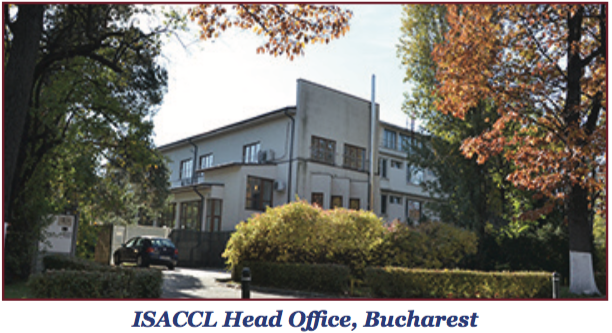
In 2017, the World Academy of Art & Science (WAAS)entered a new phase in its long-term plan to establish a virtual ‘world university’, as originally envisioned by its founders in 1960. In May 2017, the Parliament of Romania enacted new legislation establishing The Institute for Advanced Studies in Levant Culture and Civilization (ISACCL) in Bucharest as a permanent government-funded research institution in partnership with WAAS, World University Consortium (WUC) and the Romanian Academy of Sciences. This is the first time the Academy is formally partnering with a national government to establish a new scientific institution. ISACCL was formally inaugurated at a two-day international conference conducted in the plenary hall of the Romanian Parliament on November 21-22, 2017, presided over by Călin Popescu-Tăriceanu, President of the Romanian Senate. The founding of ISACCL has been the result of a six
|
 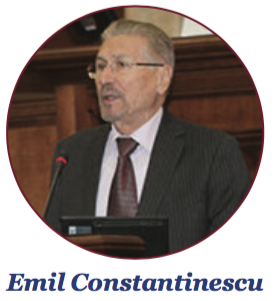 year Levant for Global Peace Initiative launched by Emil Constantinescu, former President of Romania and founding President of ISACCL, to establish a permanent research institute to promote peace in the Levant through cultural diplomacy. year Levant for Global Peace Initiative launched by Emil Constantinescu, former President of Romania and founding President of ISACCL, to establish a permanent research institute to promote peace in the Levant through cultural diplomacy.
According to the Romanian law establishing ISACCL, the Scientific Board is headed by its president, Emil Constantinescu, who also currently serves as a Trustee of WAAS and Director of WUC. The Board of Trustees of WAAS has also appointed five members to the Scientific Board of the Institute—Heitor Gurgulino de Souza, Garry Jacobs, Ivo Šlaus, Tibor Tóth and Alberto Zucconi. Other WAAS Fellows serving on the Board include the current and past presidents of the Romanian Academy, Ionel Valentin Vlad and Ionel Haiduc; the Governor of the National Bank of Romania, Mugur Isărescu; two former Ministers of Education, Remus Pricopie and Adrian Curaj; and the distinguished WAAS Fellow and Romanian Academician Mircea Maliţa. ISACCL’s Advisory Board includes WAAS Fellows Federico Mayor Zaragoza, former Director General of UNESCO, and Ismail Serageldin, founding Director of the Library of Alexandria.
|
||
|
|
|||
| FOUNDING OF ISACCL, BUCHAREST LEVANT INITIATIVE FOR GLOBAL PEACE, BUCHAREST INTERNATIONAL INSTITUTE FOR SUSTAINABLE TECHNOLOGIES, GENEVA ECOSOC GRANTS CONSULTATIVE STATUS TO WAAS ROME FUTURE EDUCATION CONFERENCE REPORT INSIGHTS ON CREATIVITY, DUBROVNIK GLOBALISM VS NATIONALISM, PODGORICA |
ECONOMICS IN A CHANGING WORLD, UMAG WAAS COLLABORATES FROM THE WAAS ARCHIVES UPCOMING EVENTS |
||

The Levant Initiative for Global Peace |
|||
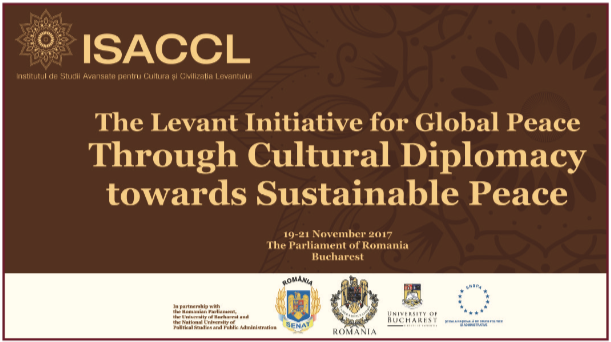
Social institutions constitute the hardware of civilization. Culture is the software. Culture is not merely concerned with preservation of traditions and works of art. It is the language of human relationships which constitute the bedrock foundation for development and social evolution. Fostering a culture of peace is the essential requirement for the progressive realization of human aspirations and human unity. These were the core themes of the international conference on The Levant Initiative for Global Peace: Through Cultural Diplomacy towards Sustainable Peace conducted in the Parliament of Romania on November 20-21, 2017. This was the seventh international conference conducted since the inception of the Levant Initiative by Emil Constantinescu in 2011 at Berlin. Subsequent conferences were conducted in Bucharest (2013), Council of Europe and UNESCO Paris (2014), United Nations in |
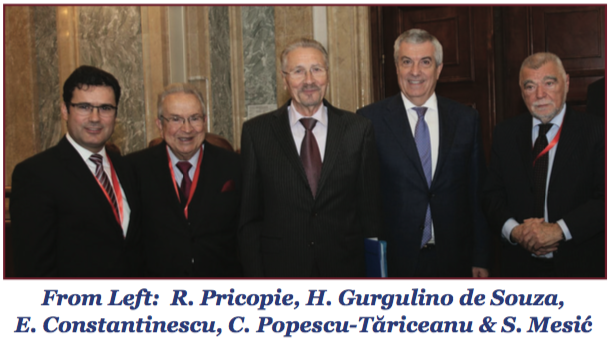 New York and UNESCO Paris (2016), and again at the UN in September 2017. New York and UNESCO Paris (2016), and again at the UN in September 2017.
The objective of this initiative is to promote a new type of relation between nations and states. Its activities are supported by WAAS in collaboration with the Romanian Academy of Science, the Romanian Parliament, the Academy for Cultural Diplomacy (Berlin), the Inter-Parliamentary Coalition of Global Ethics (IPCGE), and representatives of leading religious organizations. The conference examined the challenges and opportunities for promoting peace and development in the region through cultural diplomacy. It included a special session on the effort spearheaded by China to reestablish the original Silk Road across Central Asia to promote trade and cultural relationships in a broad area stretching from the Far East to the Mediterranean. |
||
|
|
|||

WAAS Supports New International Research
|
|||
|
The objective of the project is to promote scientific development and cooperation among the nations of the region in state of the art fields of research with the potential to generate employment, stimulate commercial enterprises and serve the public of the region. The project is modelled after SESAME, Synchrotron-Light for Experimental Science and Applications in the Middle East, the first major international research institute in the region which commenced operations in May 2017. SESAME is an autonomous intergovernmental organization at the service of its member countries, who are cooperating scientifically in spite of the political differences between their governments. Over the past one year numerous meetings have been conducted at CERN and in the region in collaboration with governments and leading research institutes to determine the level of interest in the project, identify potential |
technologies and collaborating partners. In September 2017, nine partners in the region met at CERN and agreed to collaborate on the project.
Two promising large projects are under consideration which have been identified by groups of international experts that could be of particular benefit to the region. They are based on the most modern technological developments enabling cutting edge research in many domains relevant to society. One is a synchrotron light source providing radiation research possibilities in many domains from physics to biology, material science, environmental science and even archaeology and medicine. The user community would come mainly from university faculties and also industry. The second project is a facility for cancer research and treatment with heavy particles (protons and carbon nuclei) which would also enable biomolecular research including experiments with small animals. On January 25-26 this year, representatives of these nations and potential users and partner organizations will meet at the International Centre for Theoretical Physics (ICTP) in Trieste to examine these proposals and provide indications as to which choices would be most interesting for the region. The organizing committee is chaired by Herwig Schopper. WAAS Honorary President Ivo Šlaus will deliver keynote address. Those interested in participating can register for the meeting on the ICTP website. There is no registration fee. Requests for contributions to the session “Forum on New International Research Facilities for South East Europe” should be made through an online form (comment section) indicating also the title of the contribution. Applications to participate can be made online until January 14, 2018. |
||
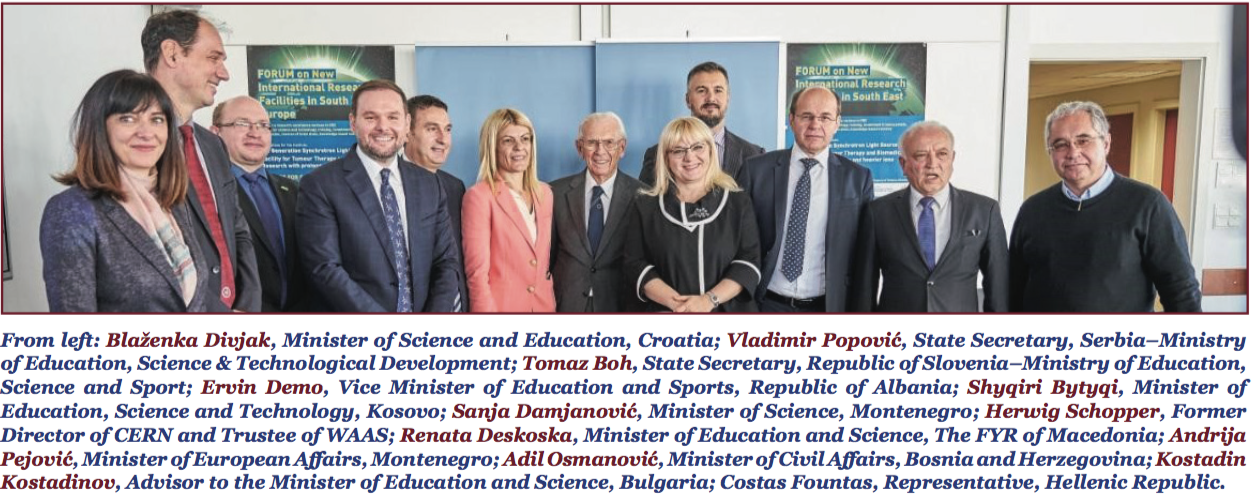 |
|||
 |
|||
|
The UN Charter established The Economic and Social Council (ECOSOC) in 1945 as one of the six main organs of the United Nations. ECOSOC is at the heart of the United Nations system to advance the three dimensions of sustain- |
-able development—economic, social and environmental. It is the United Nations’ central platform for fostering reflection, debate and innovative thinking on sustainable development. The council facilitates forging consensus on ways forward and coordinating efforts to achieve internationally agreed goals. It is also responsible for the follow-up to major UN conferences and summits.
ECOSOC engages a wide variety of stakeholders— policymakers, parliamentarians, academics, major groups, foundations, business sector representatives and 3,200+ registered non-governmental organizations —in a productive dialogue on sustainable development through a programmatic cycle of meetings. The work of the Council is guided by an issue-based approach, and there is an annual theme that accompanies each programmatic cycle, ensuring a sustained and focused discussion among multiple stakeholders. |
||
Click here to read the Report on the 2017 Rome Conference published in the WUC Newsletter
|
|||
 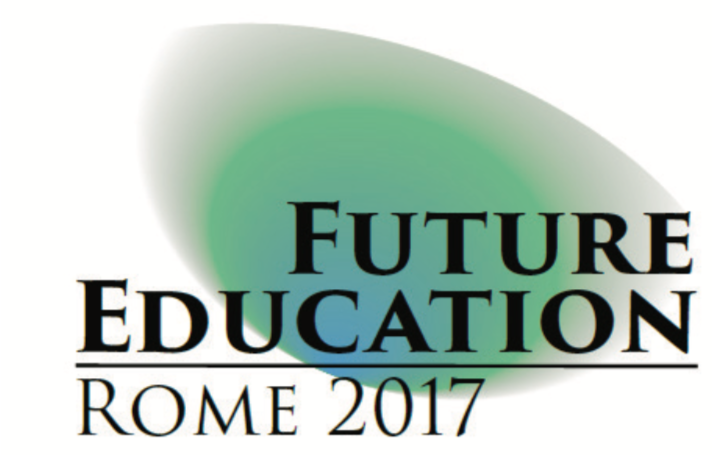 |
Effective Learning in an Age of
|
||
 |
|||

Future Education ConferenceJanuary 28, 2018 – 9:00 AM to 5:30 PM, Pondicherry, India Organized by the Mother’s Service Society (MSS) in collaboration with the World Academy of Art & Science (WAAS) and the World University Consortium (WUC), the one day conference on Future Education is a follow-up to the 1st & 2nd International Conferences on Future Education held at the University of California at Berkeley on October 2-3, 2013 and at the University of Rome III on November 16-18, 2017. Please click here to register online and for more details. Last date for submission of abstracts: January 16, 2018 |
|||
CALL FOR PAPERSXV International Colloquium, Paris, France – May 2-4, 2018 The Role and Impact of International Institutions on Economic Theory and Policy |
|||
|
International institutions have for decades influenced national policies and the developing processes of internationalization in trade, financial transactions and other areas, with varying impact depending on the region and issues involved. They play an important role in promoting structural change and socioeconomic dynamics in different stages of the development process. Their role in the coordination of climate actions policies was an important determinant leading to the COP21 in Paris and the calendar of conferences established to monitor the implementation of increasingly ambitious climate actions. Their influence has been less in some other fields, especially the regulation of financial globalization. At a time when some countries are trying to reduce the influence of international institutions, it is relevant to assess how these institutions function, formulate policies, arbitrate and reconcile the interests of nation-states with those of global civil society, and exert influence at the national and international level. The 2018 Colloquium will focus on the role international institutions |
have played in recent decades and can play in the near future in the reformulation of both economic theory and policy to promote the economic security, welfare and well-being of all nations and all people.
The organizing institutions of the Colloquium are Université PARIS 13, Nord, University of Brasilia, World Academy of Art & Science and the World University Consortium. Abstracts (maximum 400 words) should be sent to [email protected]. The last date for submission of abstracts is January 16, 2018. Abstracts will be evaluated by February 1, 2018. Paper submission, if required, must be made by February 28, 2018. |
||

2nd Roundtable on Mind, Thinking & Creativity
|
|||
|
Everyone acknowledges the importance of creative thinking skills, but few truly understand the process of creativity. The roundtable on Mind, Thinking & Creativity examined the characteristics of mind and mental development, and listed valuable recommendations for the educational system. The meeting was organized by WAAS and World University Consortium in collaboration with Inter-University Centre (IUC), Dag Hammarskjöld University College for International Relations and Diplomacy (Croatia), Mother’s Service Society (India), and Person-Centered Approach Institute (Italy) at IUC, Dubrovnik from November 6-8, 2017. According to the 2016 Workforce-Skills Preparedness Report by PayScale Inc., 60% of employers complained that the college graduates they hire are not ready for the workplace, as they |
lack critical thinking and problem solving skills. A recent article in the Wall Street Journal points out that average college graduates show no improvement in critical thinking skills after four years of college. A vital skill that marks the employability of a person is not taught in school, as the concept of creativity remains a mystery to many.
The Dubrovnik roundtable confirmed the self-evident truth that creativity is not merely an act of genius or luck. It is a process, a process that can be learned. The meeting explored many of the mental processes that lead to the discovery of new relationships, unperceived opportunities and untapped potentials. It concluded with a core set of recommendations on how these insights can be applied in classrooms and findings were presented the following week at the 2nd International Conference on Future Education at Rome. |
||
Creativity is a Social Act
|
|||
Power of QuestionsThe answers you get depend upon the questions you ask.
– Thomas Kuhn
Imitating Nature |
|||
|
Why did it take human beings 190,000 years to invent agriculture?
|
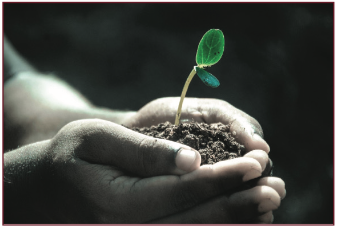 who has not been the beneficiary of thousands of years of collective knowledge. Acute observation needed to be coupled with the capacity to relate and correlate each condition and factor of production with countless others to identify critical determinants and weed out those that were irrelevant or purely circumstantial. Correlating the color, smell, texture, consistency and moisture of soil to the growth of different crops was the work of centuries of investigation. Rediscovering agriculture through acts of imagination is itself a great act of creativity that reveals profound insights into the creative processes for new discoveries today. who has not been the beneficiary of thousands of years of collective knowledge. Acute observation needed to be coupled with the capacity to relate and correlate each condition and factor of production with countless others to identify critical determinants and weed out those that were irrelevant or purely circumstantial. Correlating the color, smell, texture, consistency and moisture of soil to the growth of different crops was the work of centuries of investigation. Rediscovering agriculture through acts of imagination is itself a great act of creativity that reveals profound insights into the creative processes for new discoveries today. |
||
|
|||
Unraveling Complexity
|
|||
 |
|||
Organizational CreativityWhat do language, agriculture, manufacturing, markets, money, cities, science and internet have in common?
Who Done It?
The story of a stolen race horse and his murdered trainer offers rich insights into mind, thinking and creativity. Arthur Conan Doyle’s Sherlock Holmes tale “Silver Blaze” reveals the typical pitfalls of linear rational thinking tainted with egoistic ambition. Intuition is born of an integral perspective. Profound knowledge can be gained by pursuing comprehensive creative solutions that account for even the smallest particle of information. A dish of mutton curry trashed Scotland Yard’s simplistic theory that the gambler did it. Sometimes the most important facts are those that did not occur. They also overlooked the simple fact that the dog did not bark. As Holmes reminds, never come to conclusions until all the evidence is before you and when all plausible explanations have been exhausted, look to the implausible for the answer. |
Superstition, Reason & Logic as
|
||
Chance & Causality |
|||
|
Our notions of chance and causality are based on the premises of materialism developed by modern science which |
have proven of great value in explaining a great many purely physical phenomena such as the motion of objects described by Newton. Much of what passes for chance in science is simply phenomena of which we do not know the causal factors or do not have the capacity to measure their impact. These same conceptions are grossly inadequate to explain historical, biographical, literary and personal experiences which are extremely improbable yet remarkably common. Take the example of Jacqueline Novogratz of Virginia who gifted her blue sweater to charity at age 15 and then met a boy wearing the very same sweater with her name on it 10 years later while visiting Africa. Or Maxwell Morrison, the high school student in Chicago who saved the life of a Thai student who swore to repay the debt. Maxwell was mistakenly accused and arrested for drug smuggling 20 years later while visiting Thailand only to be saved by the very same Thai boy who had grown up and become the judge trying his case. | ||
Creative Modelling
|
We cannot regulate our interaction with any aspect of reality that our model of reality does not include—whether as to its theoretical range or as to its observational facilities and resolution—because we cannot by de nition be conscious of it. – Stafford Beer |
||
Art of Creative Communication
|
Integration and Unification
|
||
|
– Drenka Dobrosavljević, |
|||
Inter-disciplinary Creativity in Renaissance Italy
|
|||
|
|
|
||
Law as Evolutionary Creativity |
|||
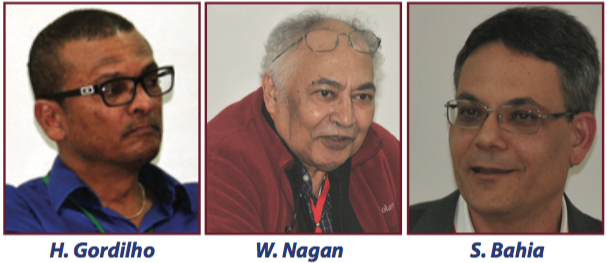
Law is commonly regarded as the most staid and uncreative of fields encumbered by centuries of accumulated principles, precedents, rules and procedures. In reality, the creation of the law has been the driving force for the transformation of human relations from the battlefield to the conference table, marketplace and the courtroom; from rule of might to rule of rights, contracts, treaties and higher expressions of civilization. |
The foundations of law are continuously evolving. Though jurists strive to emphasize continuity with the past as the mark of legitimacy, in fact the evolution of law has progressed through markedly different stages—from the rights of the most powerful leaders and countries to seize whatever they can—be it property or entire countries—to the divine right of kings, the feudal privileges of aristocracy and the sovereignty of nations to finally establish a foundation on universal human rights. In fact all these levels of law persist and co-exist and their relative contribution is constantly evolving. Moreover, every act of interpreting and applying law to specific situations by the legal system contitutes a creative act involving the conversion of a general principle into a specific judgement based on the unique peculiarities of each case. |
||
Creative Leadership |
|||
|
|
|
||
Creativity in ScienceNew facts, collected in old ways under the guidance of old theories, rarely lead to any substantial revision of thought. Facts do not “speak for themselves”; they are read in the light of theory. Creative thought, in science as much as in the arts, is the motor of changing opinion. –Stephen J. Gould |
|||
Man and Machine
Artificial intelligence can mimic certain mental capacities like memory, recreate the mechanistic aspects of human mind and excel at the high volume tasks. Human intelligence is unique by the understanding of fundamental processes of conscious awareness and knowing, self-consciousness, insight and creativity. |
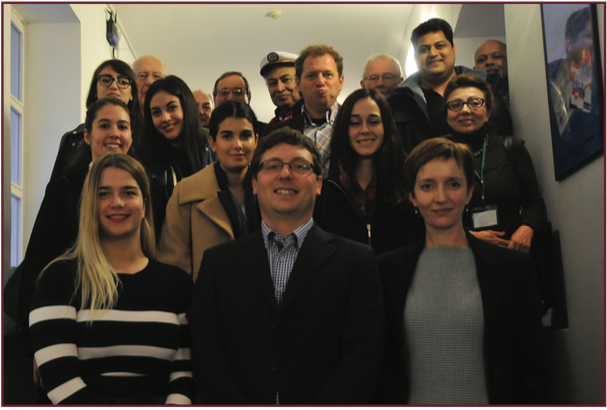
– Marta Neškovic |
||
Creative Healthcare Solutions |
|||
|
Research on the placebo effect has focused on relationship |
between mind and body. Even the relationship between patient and doctor, and the faith that the patient places on the doctor improve the outcome of treatment.
Professor Ted Kaptchuk, director of the Harvard-wide Program in Placebo Studies, says, “The placebo effect is more than positive thinking—believing a treatment or procedure will work. It is about creating a stronger connection between the mind and body and how they work together.” How placebos work is still not fully understood. If the role of the functioning of mind is carefully studied and fully understood, creative healthcare solutions can be developed, and dependence on real medicines can be reduced. |
||
 |
|||
Roundtable Recommendations on Education for CreativityThe findings of the Roundtable were presented and discussed at the 2nd International Conference on Future Education in Rome on Nov 16-18, 2017.
|
|||
|
– Davor Bernardić |
– Francis Brassard |
||
 |
|||
|
Rapid strides in technology, communication, international trade, opening of borders and economically interdependent economies have been achieved since the end of the Cold War. However, the persistence of outdated nationalistic concepts and attitudes has resulted in increasing tensions and conflicts at the political and the cultural levels. Nationalism is a system that politically, socially and economically promotes the interests of a particular nation, which is the fundamental unit of human social life. Globalism and Nationalism has been a subject debated among learned scholars for years. WAAS Trustee Alexander Likhotal argued that the |
process of globalisation is inevitable and irreversible. The rise of populism and polarization that are undermining democracy today can be traced back to the disenfranchisement of the working and middle class who have lost faith in their economic future and succumb to populist leaders who blame globalization and foreigners for their problems.
Garry Jacobs, Chief Executive Officer of WAAS, attributed the decline in democracy to the assertion of neoliberal economic theory and policies that ignore the aspirations and welfare of the population at large. He called for reversal of the growing concentration of monetary and social power in a small elite minority as essential for the preservation and restoration of democracy. Other presentations covered a wide range of problems including Sustainable Development through Open science and Innovation, Global Social Transformation, Time and Space in the social-cultural field of globalization, Extremism and Safety challenges, Globalization and national differences in Education, Competencies and Innovation, Geopolitics of Resistance, The Political Economy of Neoliberalism, Rule of Law, Social integration and ethno-cultural diversity, Integration and Multiculturalism, National identity… |
||
 
Contents of the Recent Cadmus Issue – October 2017 |
|||
|
WAAS-UN: A Special Consultative Status and its Inspirational Value Challenges are Opportunities for Korea & the World by Garry Jacobs The Ethics of Time in the Face of Global Challenges by Federico Mayor |
High-Level System Change: Protecting Business and Society by Frank Dixon The Political Economy of Neoliberalism and Illiberal Democracy by Garry Jacobs Economy and Society: Strategies for a More Equal Distribution of Societal Power by Erich Hoedl Original Minds: Sri Aurobindo – Integral Scientist Human Attitudes that Prevent the Advance of Human Progress and Civilization by Ashok Natarajan Book Reviews – Global Systems Change: Six Linked Perspectives by Michael Marien |
||

New Economic Theory meets the Mainstream
|
|||
|
WAAS CEO Garry Jacobs presented an overview of the |
conclusions of the New Economic Theory Working Group on Human-Centered Economics and argued that the resurgence of neoliberal theory and policies after 1990 was a direct and principal cause for the observable deterioration of democratic institutions, polarization of politics and rise of populism in the US, UK, Turkey, Hungary and elsewhere.
Winston Nagan, Chairman of the Board of Trustees, WAAS, reinforced this perspective with observations on the relationship between social democratic constitutionalism, new economic theory and the dangers of neoliberalism’s attack on rational government regulation. Erich Hoedl, Fellow of WAAS, examined the relationship between economy and societal power and argued for strategies to foster a more equitable distribution of income and social power as essential conditions for preserving the gains of global development and social stability. WAAS Fellow Rodolfo Fiorini examined the impact of the new economy on human well-being with emphasis on the anticipated consequences of the Fourth Industrial Revolution on employment and living standards and the increasing interconnectedness of the global network society. WAAS and eXEL are exploring plans for on-going collaboration in future. WAAS Honorary President Ivo Šlaus is the chairman of eXEL and Davor Bernardić is the president of the Social Democratic Party of Croatia (SDP) and Leader of the Parliamentary Opposition in Croatia, an honorary member of eXEL and an Associate Fellow of WAAS. |
||

The Academy continues its open door, open network strategy of encouraging collaboration with a wide range of organizations thinking and working on parallel lines. |
|||
|
FUTURE OF UNIVERSITIES
GLOBALISTICS 2017
NEW PARADIGM IN EDUCATION Ukraine has an opportunity to define and develop a new paradigm in higher education drawing on its highly education-prone young population as a human-capital intensive strategy for accelerated transition to a modern democratic market economy. This was the thrust of a special presentation by WAAS CEO Garry Jacobs to a committee of the Ukrainian Parliament. He argued that a radical shift in |
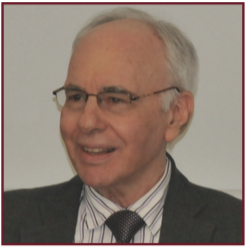 direction is needed to reorient education from the existing information-intensive, standardized, mass production model now in force to one that shifts the focus to promoting the critical thinking, innovation, creativity, interpersonal and leadership skills the nation and the world urgently need to address the challenges of economic transition and those arising from the onslaught of the 4th Industrial Revolution. Similar themes were also discussed at meetings organized by Aspen Institute of Ukraine, the Kiev International Economic Forum 2017, and the Bohdan Hawrylyshyn Family Foundation. direction is needed to reorient education from the existing information-intensive, standardized, mass production model now in force to one that shifts the focus to promoting the critical thinking, innovation, creativity, interpersonal and leadership skills the nation and the world urgently need to address the challenges of economic transition and those arising from the onslaught of the 4th Industrial Revolution. Similar themes were also discussed at meetings organized by Aspen Institute of Ukraine, the Kiev International Economic Forum 2017, and the Bohdan Hawrylyshyn Family Foundation.
VALUES IN BUSINESS: NEW ECONOMY, OLD TRADITIONS
The conference brought together a diverse group from all over Europe to examine the social responsibility of business, the role of ethics and values in economy, and emerging ideas on creativity and conscious capitalism. Garry Jacobs called for efforts to reunite the subjective and objective dimensions of human life by integrating human, economic and social welfare with psychological and spiritual well-being. He argued that rather than being mutually exclusive they represent two critical dimensions of life which can only continue to develop in harmony with one another. The exclusive preoccupation with financialization and shareholder value is a temporary distortion consequent to the demise of communism which threatens to undermine decades of real progress on economic security and human welfare. Advances in economic and management theory and practice are needed to reverse the lopsided approach that is undermining social welfare, human well-being and democratic governance. |
||
 |
|||
|
The primary task of the educationist is to dispel certain age-old assumptions. It seems to be assumed, for example, that there are no more than two sides to a problem. As a matter of fact, almost every problem has more than two sides. It is also fallacious to paint human beliefs and human societies in terms of pure black and white. There are various shades in between. There are very few international issues today which can be settled on the basis of a clear-cut judgement that one side is right and the other is wrong. International problems have become so complicated, and so many different elements enter into them, that a simple clear-cut judgement in terms of black and white is no longer possible. I believe that the prime need today is this need for better understanding, especially the better understanding of the other man’s problems and of his point of view. We live in an age of technological miracles. In a world which is thus shrinking, it is essential that the human mind must open out, and that we must realize that we all have a common interest in survival and that this interest binds us together. I believe that one of the major tasks of education in our changing times is to create in the young the willingness to tolerate differences of opinion and the desire to try to understand different points of view. The main aim of education in the West is the development of the intellect. The massive progress of science and technology has tended to stress the intellectual rather than the moral |
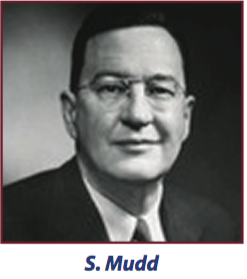 and spiritual values. In Asia the traditional aim of education is to impress on the young the importance of the mind rather than the body, and the importance of the spirit rather than the mind. Education thus becomes inward looking, and the aim of education is the discovery of one’s self rather than the discovery of things external to us. Today I feel that both approaches are inadequate, and that it is not enough to stress in education either purely moral and spiritual or purely mental and intellectual values. Education cannot mean merely the development of our intellect or of all our potentialities. Nor can it mean mere preparation for life, but rather to make the world a better place to live in. Our educators should realize as clearly as possible what kind of potentialities they are to develop in students; what kind of life they are to educate young people for. The ideals and values which constitute the essential elements of culture must first be clearly understood and appreciated. What we therefore need is a synthesis of these values—spiritual and moral as well as intellectual—with the aim of producing a fully integrated human being who is inward looking as well as outward looking, who searches his own mind in order that his nobler self may prevail at all times, and at the same time recognizes his obligations to his fellow men and the world around him; because while the world is shrinking, humanity is multiplying, and each of us has to recognize his essential kinship to every other member of the human race. and spiritual values. In Asia the traditional aim of education is to impress on the young the importance of the mind rather than the body, and the importance of the spirit rather than the mind. Education thus becomes inward looking, and the aim of education is the discovery of one’s self rather than the discovery of things external to us. Today I feel that both approaches are inadequate, and that it is not enough to stress in education either purely moral and spiritual or purely mental and intellectual values. Education cannot mean merely the development of our intellect or of all our potentialities. Nor can it mean mere preparation for life, but rather to make the world a better place to live in. Our educators should realize as clearly as possible what kind of potentialities they are to develop in students; what kind of life they are to educate young people for. The ideals and values which constitute the essential elements of culture must first be clearly understood and appreciated. What we therefore need is a synthesis of these values—spiritual and moral as well as intellectual—with the aim of producing a fully integrated human being who is inward looking as well as outward looking, who searches his own mind in order that his nobler self may prevail at all times, and at the same time recognizes his obligations to his fellow men and the world around him; because while the world is shrinking, humanity is multiplying, and each of us has to recognize his essential kinship to every other member of the human race.
– U. Thant, Secretary-General of the United Nations |
||

Meeting on Charter of Human Responsibilities at WEF |
|||
|
“Creating a shared future in a fractured world”—the theme of this year’s World Economic Forum—can be met if we develop models for cooperation that are not based on narrow interests but on the destiny of humanity as a whole. In honour of Bohdan Hawrylyshyn, a WAAS Trustee who developed the Charter of Human Obligations, a panel discussion will be held in Davos to encourage global leaders to question how co-design, co-creation and collaboration can be realized if they commit to a values-based approach and a shared Charter of Human Responsibilities. A values-based approach to business needs to be defined and a Charter of Human Responsibilities needs to be drafted and adopted in order to meet the global agenda of good governance, improving multilateral processes, and achieving the UN Sustainable Development Goals. |
Dr. Hawrylyshyn’s Charter of Human Obligations was ratified by the WAAS Board of Directors in 2014 and presented by WAAS Junior Fellow Alexandra Telychko at the Human Rights Almaty Conference in November 2014 and will be part of the discussion in Davos. The panel discussion is being hosted by Ukraine House and organized and moderated by Kadie Ward, Founder of Build Strong Cities, and Senior Governance Advisor to international development programs financed by the Canadian Government. The panel will be held on Friday January 26th, 2018 between 11 AM and 12 PM at Ukraine House, Khreschatyk vul. 2, Kiev 01001, Ukraine. WAAS Fellows are invited to join and contribute to a global discussion of good governance, improving multilateral processes, facilitating public-private collaboration. |
||

History of Peace in the West by Miguel Bosé and David Fernández Puyana |
|||
|
“Everyone has the right to enjoy peace such that all human rights are promoted and protected, and development is fully realized“. On the first anniversary of the adoption of the Declaration on the Right to Peace, the United Nations mandated University for Peace and the UNESCO Chair on Peace, Solidarity and Intercultural Dialogue of the Abat Oliba University CEU, with the support of the foundation for Peace without Borders, released the book “History of Peace in the West”. |
The book was released by Peace without Borders and University for Peace (UPEACE). Click here for further information and free access to these publications. |
||
Click here to watch the videos of the 2017 Rome Conference in the WAAS website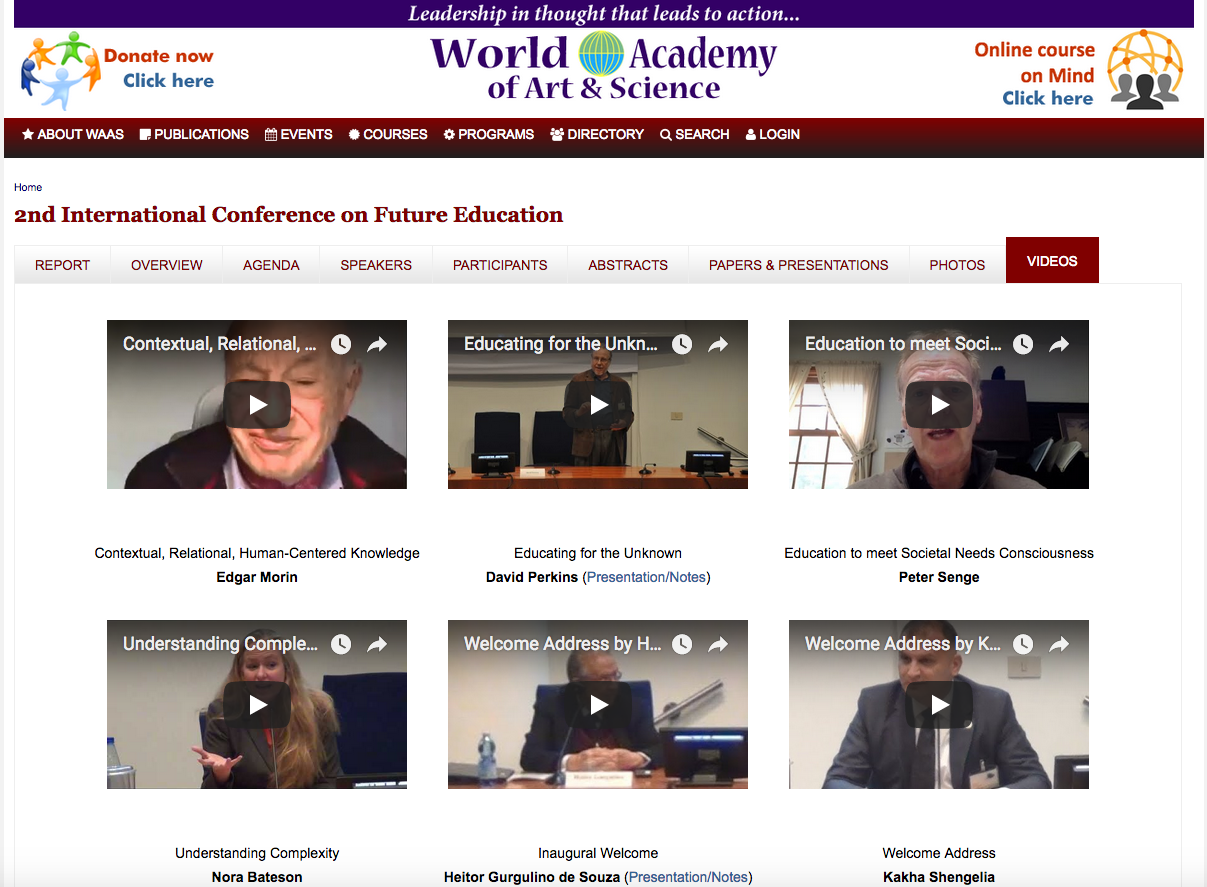
|
|||

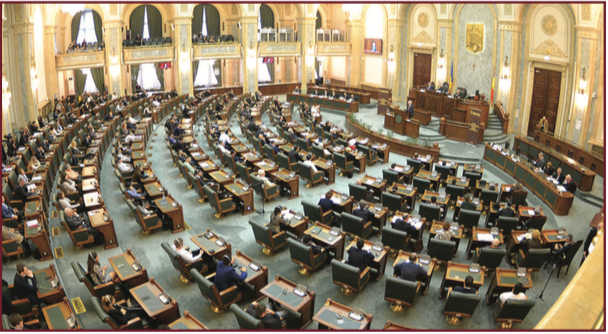
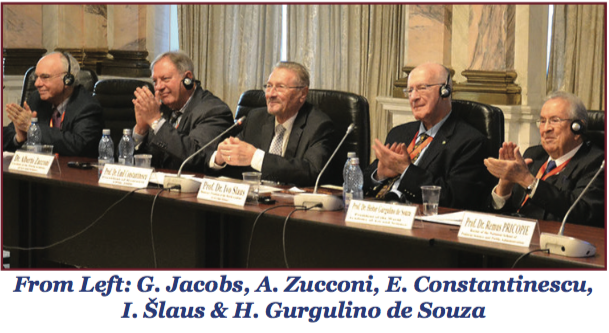
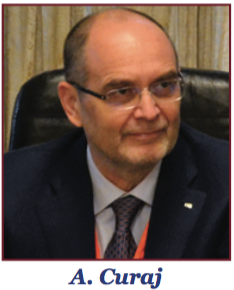

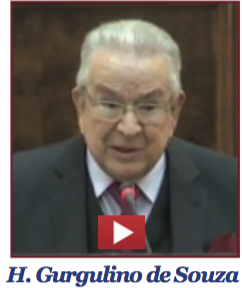
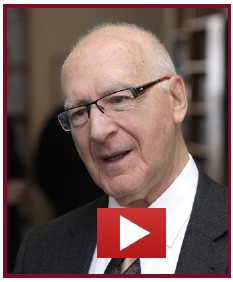
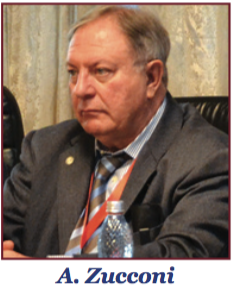
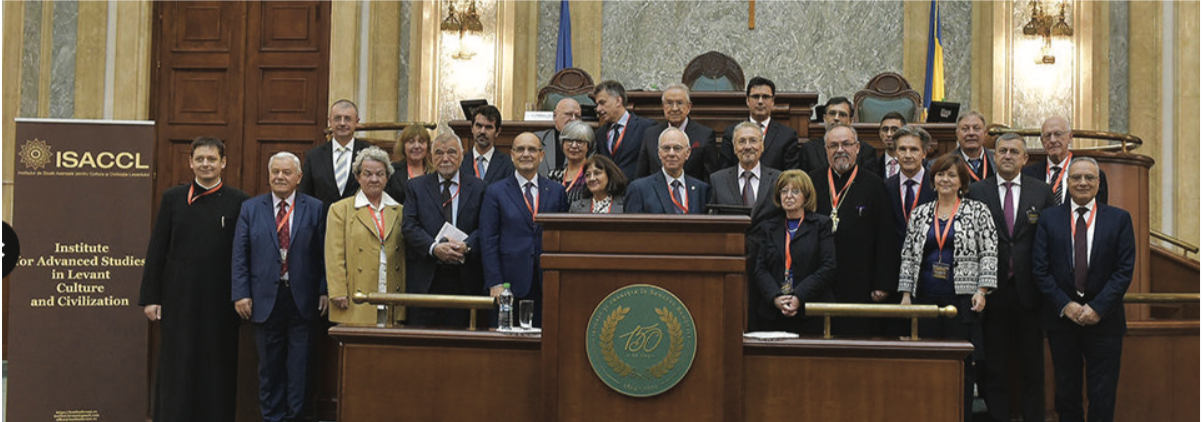
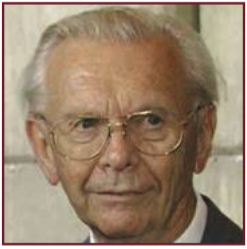
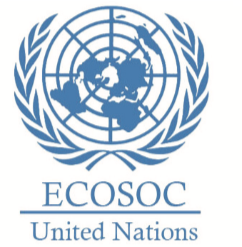

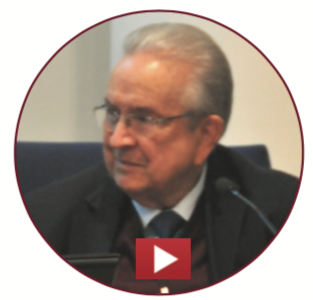

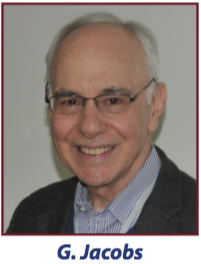
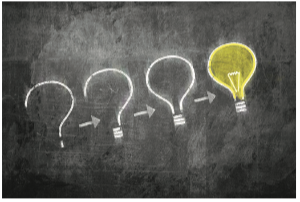 From the time of Socrates, it has been known that asking questions is one of the effective ways to stimulate creativity, original thinking and fresh discovery. It is also true that any question, no matter how silly, unrelated or apparently meaningless it may seem, can lead an open mind to greater insights and discoveries.
From the time of Socrates, it has been known that asking questions is one of the effective ways to stimulate creativity, original thinking and fresh discovery. It is also true that any question, no matter how silly, unrelated or apparently meaningless it may seem, can lead an open mind to greater insights and discoveries.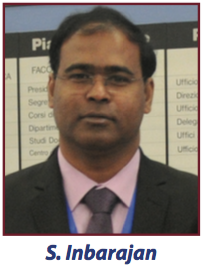 Agriculture is arguably the greatest human invention of all time. Nothing else has so radically transformed life on earth. It is the foundation on which civilization and social evolution are built. Nature’s method is transparent and observable, yet it remained a mystery for countless millennia. Deciphering the process required human beings to make millions of observations about what grows when, where and how under what conditions. The relationship between the tree and seed, seed and soil type, sprouting and sunshine, temperature and season, rainfall and plant growth is self-evident to every child today, but none of them are obvious or easily discernible to anyone
Agriculture is arguably the greatest human invention of all time. Nothing else has so radically transformed life on earth. It is the foundation on which civilization and social evolution are built. Nature’s method is transparent and observable, yet it remained a mystery for countless millennia. Deciphering the process required human beings to make millions of observations about what grows when, where and how under what conditions. The relationship between the tree and seed, seed and soil type, sprouting and sunshine, temperature and season, rainfall and plant growth is self-evident to every child today, but none of them are obvious or easily discernible to anyone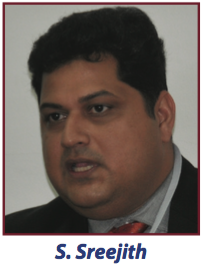 Conscious Creativity Abridges Time
Conscious Creativity Abridges Time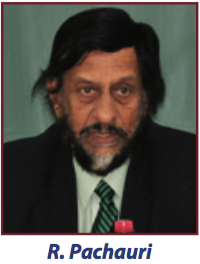 There was a time when geography textbooks taught about the unchanging characteristics of climate in each particular region of the world, because they did not understand the relationship between climate and the growth of forests, agriculture, sunspots, human settlements, industrial activity, energy production, consumption and pollution. Today we know that climate is changing as a result of all these factors. The evolution of science
There was a time when geography textbooks taught about the unchanging characteristics of climate in each particular region of the world, because they did not understand the relationship between climate and the growth of forests, agriculture, sunspots, human settlements, industrial activity, energy production, consumption and pollution. Today we know that climate is changing as a result of all these factors. The evolution of science to tackle the challenge of climate change represents an unprecedented collective act of creativity by the global scientific community involving tens of thousands of researchers.
to tackle the challenge of climate change represents an unprecedented collective act of creativity by the global scientific community involving tens of thousands of researchers.
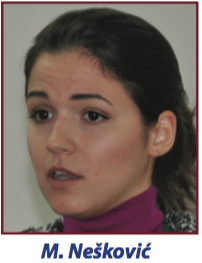
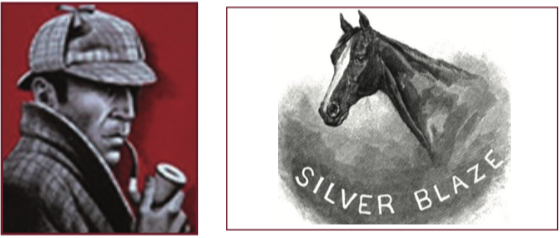
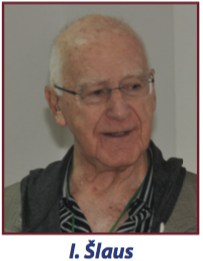
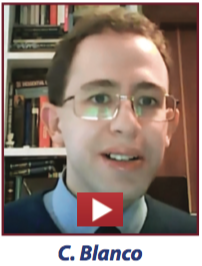
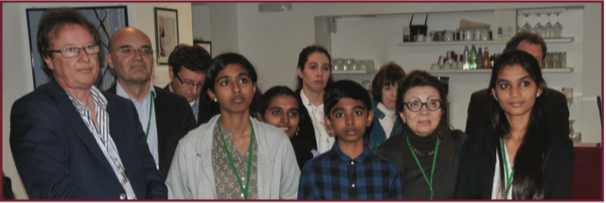
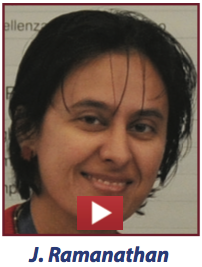
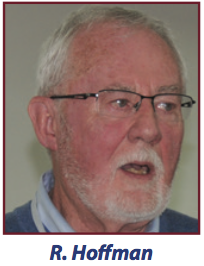 The act of model making is mental creativity, and we strive to create models that are closer to reflecting the world as it is. Computers create dynamic models through simulations that portray and test conflicting theories. The process of creating a model leads to rigorous thought, and exposes fallacies in mental models.
The act of model making is mental creativity, and we strive to create models that are closer to reflecting the world as it is. Computers create dynamic models through simulations that portray and test conflicting theories. The process of creating a model leads to rigorous thought, and exposes fallacies in mental models.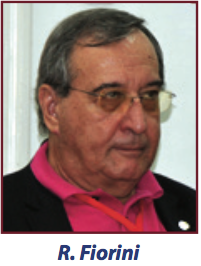 Communication is a creative process. All forms of communication including written or verbal expression, conceptualization, symbol-making, abstraction, and analogy involve the condensation and transformation of personal insights and experience in a form that can be passed on to other people. Each stage in the process involves a loss of information, a further generalization and abstraction of reality. This loss is inevitable. The problem comes when we mistake communication for the reality it seeks to represent. The capacity to evoke the original experience in another person is the point at which communication becomes a creative form of art.
Communication is a creative process. All forms of communication including written or verbal expression, conceptualization, symbol-making, abstraction, and analogy involve the condensation and transformation of personal insights and experience in a form that can be passed on to other people. Each stage in the process involves a loss of information, a further generalization and abstraction of reality. This loss is inevitable. The problem comes when we mistake communication for the reality it seeks to represent. The capacity to evoke the original experience in another person is the point at which communication becomes a creative form of art.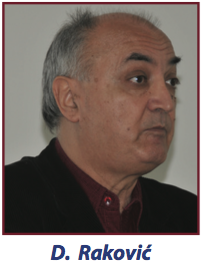 The greatest scientific discoveries have led to the unification of apparently unconnected phenomena. Newton’s laws unified motion and inertia. Maxwell discovered that by unifying magnetism and electricity both could be explained according to the principles of electromagnetism.
The greatest scientific discoveries have led to the unification of apparently unconnected phenomena. Newton’s laws unified motion and inertia. Maxwell discovered that by unifying magnetism and electricity both could be explained according to the principles of electromagnetism. 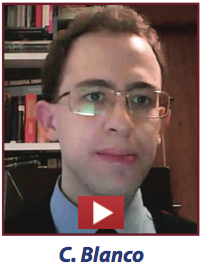
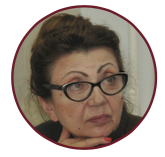 We explored ways to promote integrated forms of thinking that will foster original thinking, creativity and intuitive ways of knowing.
We explored ways to promote integrated forms of thinking that will foster original thinking, creativity and intuitive ways of knowing.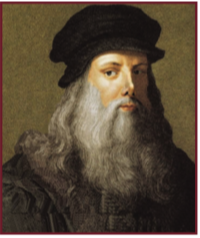 Florence was a triumph of both art and engineering combining technology, design, chemistry and commerce. This mixing of ideas from different disciplines became the norm as people of diverse talents intermingled, as Walter Isaacson describes in his book on Leonardo da Vinci. Creativity arises from the ability to combine ideas from disparate disciplines.
Florence was a triumph of both art and engineering combining technology, design, chemistry and commerce. This mixing of ideas from different disciplines became the norm as people of diverse talents intermingled, as Walter Isaacson describes in his book on Leonardo da Vinci. Creativity arises from the ability to combine ideas from disparate disciplines.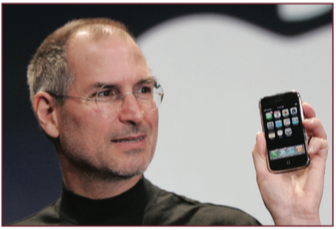 The same quality is at the root of the astonishing functional creativity that characterizes Silicon Valley today where technology, design, materials and neuroscience, science, and commerce are integrated with human needs and aspirations to an extent unimagined in the past.
The same quality is at the root of the astonishing functional creativity that characterizes Silicon Valley today where technology, design, materials and neuroscience, science, and commerce are integrated with human needs and aspirations to an extent unimagined in the past.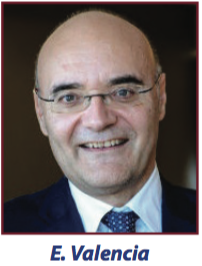
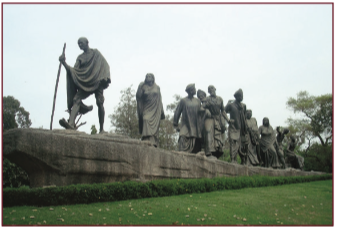 He accomplished this tremendous feat of creative leadership by looking at the PC business from a fresh perspective to discover people’s unmet needs and aspirations.
He accomplished this tremendous feat of creative leadership by looking at the PC business from a fresh perspective to discover people’s unmet needs and aspirations. 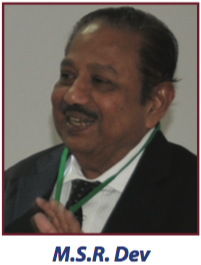 And quickly transformed Apple from a commodity PC maker into a music company with the launch of the iPod, and then into the world’s most profitable maker of smartphones and tablet PCs. Jobs’ success arose because he creatively conceived of Apple as a company that utilizes technology to empower individuals to better meet their needs.
And quickly transformed Apple from a commodity PC maker into a music company with the launch of the iPod, and then into the world’s most profitable maker of smartphones and tablet PCs. Jobs’ success arose because he creatively conceived of Apple as a company that utilizes technology to empower individuals to better meet their needs.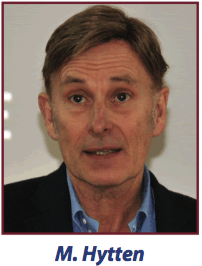
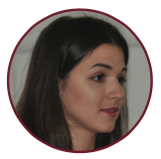 The most impressive part was the active engagement of the participants in reevaluating historical events and real life situations for the purpose of understanding how the human mind functions.
The most impressive part was the active engagement of the participants in reevaluating historical events and real life situations for the purpose of understanding how the human mind functions.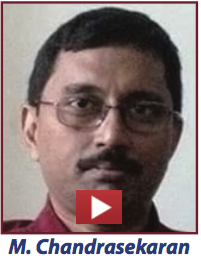
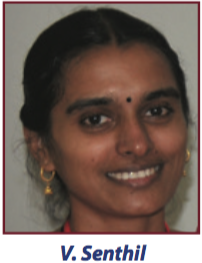 Creativity of mind occurs in an atmosphere of freedom, engagement and interaction. Activities in the classroom should be structured around the students, rather than subjects, giving them freedom to raise questions, voice their ideas and interact with one another in pursuit of knowledge. This will develop students’ capacity to see beyond what exists and open their minds to new ideas. An interactive classroom fosters active, experiential learning, whereas the current system of education encourages rote memorization and regurgitation of facts. Teaching strategies should develop and exercise the students’ mental faculties for conceptualization, judgment, analysis, discrimination, organization, problem-solving, value-based decision-making, integration of knowledge and imagination. The focus should be on learning how to learn by learning about the validity of different ways of thinking and viewing reality.
Creativity of mind occurs in an atmosphere of freedom, engagement and interaction. Activities in the classroom should be structured around the students, rather than subjects, giving them freedom to raise questions, voice their ideas and interact with one another in pursuit of knowledge. This will develop students’ capacity to see beyond what exists and open their minds to new ideas. An interactive classroom fosters active, experiential learning, whereas the current system of education encourages rote memorization and regurgitation of facts. Teaching strategies should develop and exercise the students’ mental faculties for conceptualization, judgment, analysis, discrimination, organization, problem-solving, value-based decision-making, integration of knowledge and imagination. The focus should be on learning how to learn by learning about the validity of different ways of thinking and viewing reality.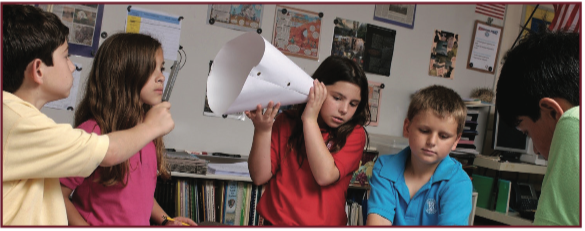
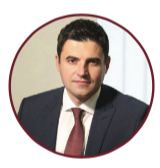 Improvement of living conditions and human welfare is not limited by bounds or rules. Remarkable upsurge is carried out by individuals with firm vision and inner belief.
Improvement of living conditions and human welfare is not limited by bounds or rules. Remarkable upsurge is carried out by individuals with firm vision and inner belief.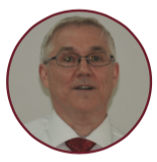 It was a great occasion to exchange ideas and to make contacts with colleagues who are passionately engaged in researching questions I am also passionate about.
It was a great occasion to exchange ideas and to make contacts with colleagues who are passionately engaged in researching questions I am also passionate about.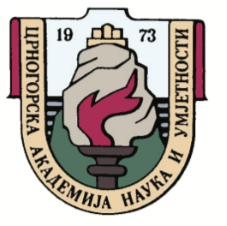 An International Conference on ‘Globalism vs. Nationalism’ was conducted in Podgorica on November 2-3, 2017, organized by Montenegrin Academy of Sciences & Arts (MASA), World Academy of Art & Science, European Academy of Sciences & Arts and the Global Round Table from Brussels. This is the sixth annual conference organized by MASA and WAAS in joint collaboration. Participants included 60 speakers from 23 countries.
An International Conference on ‘Globalism vs. Nationalism’ was conducted in Podgorica on November 2-3, 2017, organized by Montenegrin Academy of Sciences & Arts (MASA), World Academy of Art & Science, European Academy of Sciences & Arts and the Global Round Table from Brussels. This is the sixth annual conference organized by MASA and WAAS in joint collaboration. Participants included 60 speakers from 23 countries.
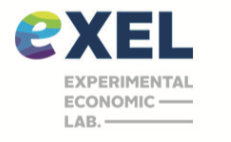
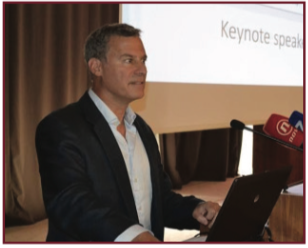


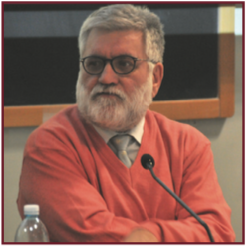 The Intrepid research group on the future of universities and the role of inter- and transdisciplinary knowledge held two thought-provoking workshops at ITD Conference 2017: Transdisciplinary Research and Education held on September 11-15, 2017 at Leuphana University, Lüneburg, Germany. WAAS Fellows
The Intrepid research group on the future of universities and the role of inter- and transdisciplinary knowledge held two thought-provoking workshops at ITD Conference 2017: Transdisciplinary Research and Education held on September 11-15, 2017 at Leuphana University, Lüneburg, Germany. WAAS Fellows 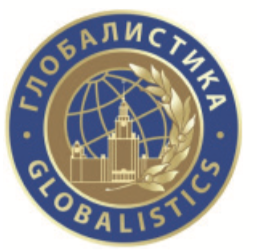
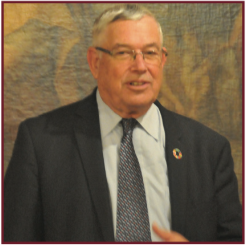
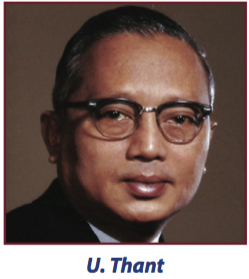
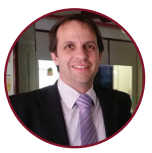 On 19 December 2016, the General Assembly of the United Nations adopted the Declaration on the Right to Peace, which is the result of three intense sessions of the Intergovernmental Working Group on the Right to Peace of the Human Rights Council led by Ambassador Christian Guillermet with the legal support of
On 19 December 2016, the General Assembly of the United Nations adopted the Declaration on the Right to Peace, which is the result of three intense sessions of the Intergovernmental Working Group on the Right to Peace of the Human Rights Council led by Ambassador Christian Guillermet with the legal support of 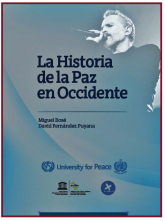 This publication aims to make a historical peace journey from the Ancient Greece and Rome to the modern times, through the living testimony of some well-known thinkers, artists and philosophers. In this way, this book promotes a broader exchange of knowledge and a better understanding of the cultural heritage of our humankind.
This publication aims to make a historical peace journey from the Ancient Greece and Rome to the modern times, through the living testimony of some well-known thinkers, artists and philosophers. In this way, this book promotes a broader exchange of knowledge and a better understanding of the cultural heritage of our humankind.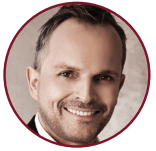 The Declaration on the Right to Peace nds its roots in the Hittite—Egyptian Treaty, which marked the end of the long war between the two empires for the control of Syria in 1276 BC. The treaty, whose bronze replica is located
The Declaration on the Right to Peace nds its roots in the Hittite—Egyptian Treaty, which marked the end of the long war between the two empires for the control of Syria in 1276 BC. The treaty, whose bronze replica is located